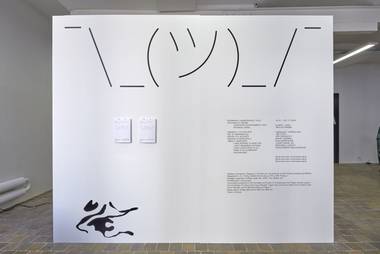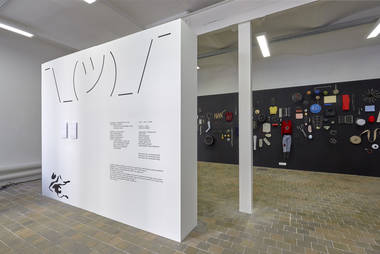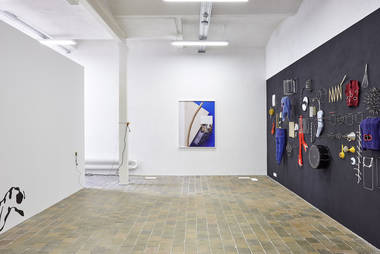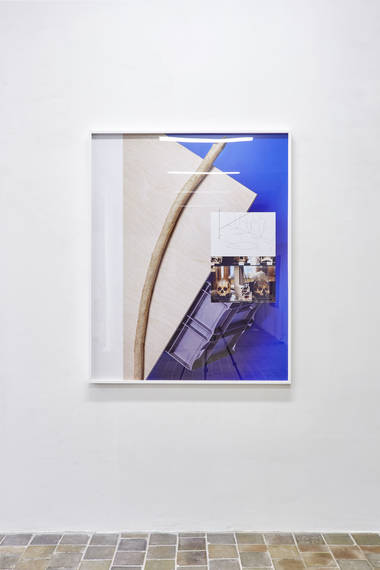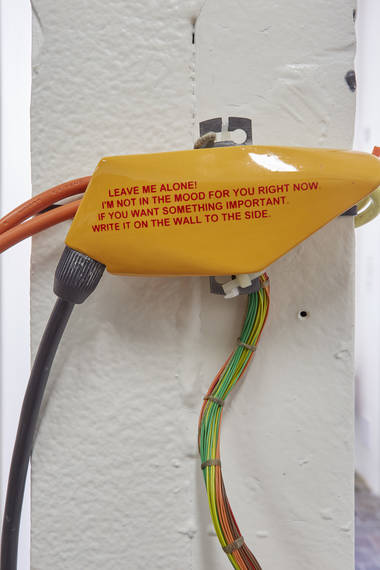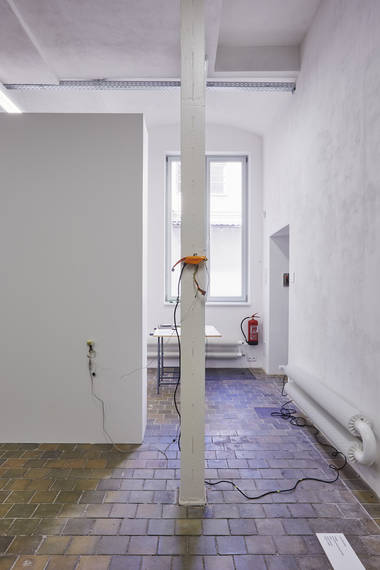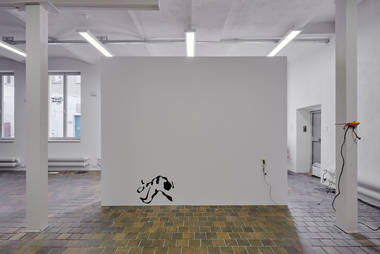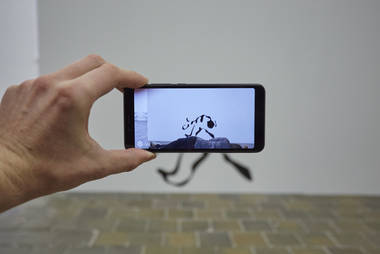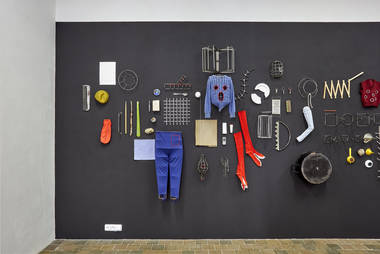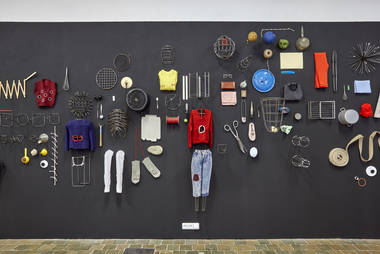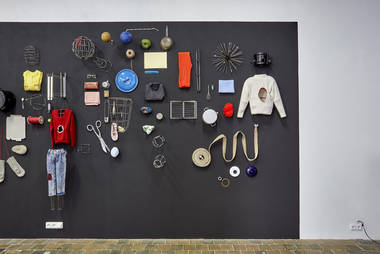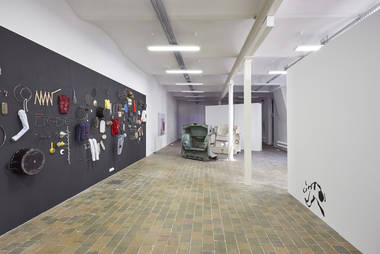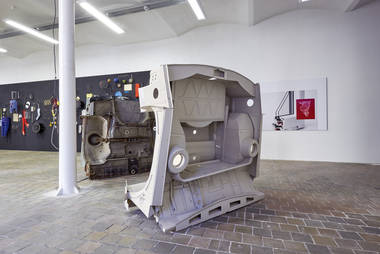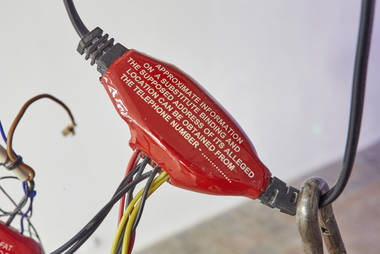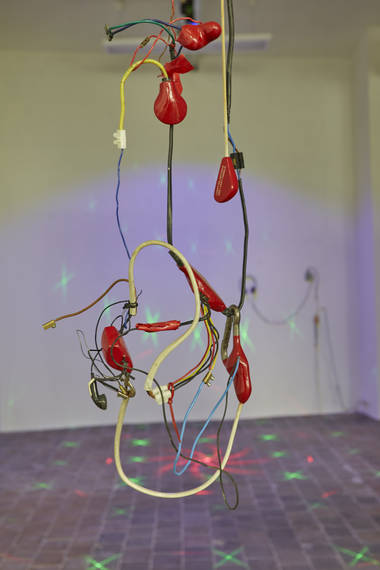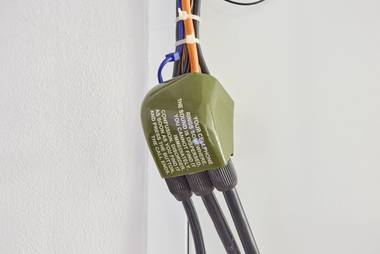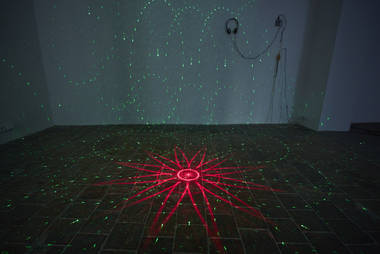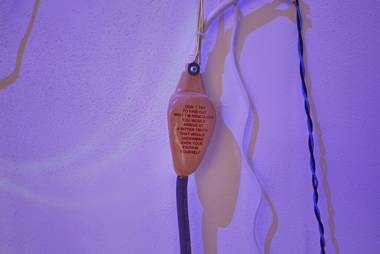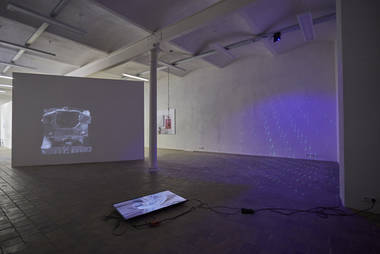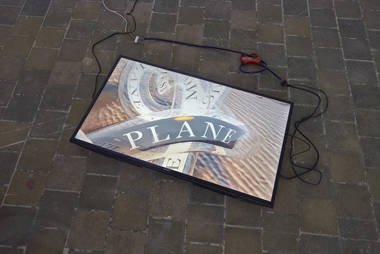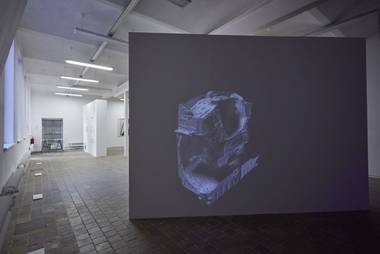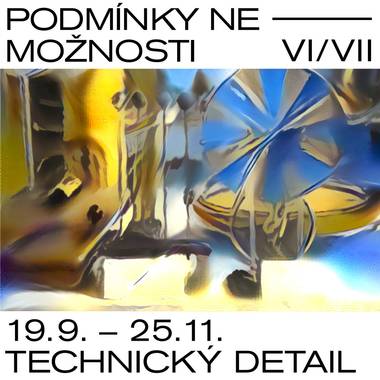Conditions of Impossibility VI/VII: Technical Detail
September 19 – November 25, 2018
opening: September 18, 2018
guided tour with curator: November 19, 2018 from 7 PM
artists: Jiří Černický, Eva Koťátková, Richard Loskot, Drahomíra Maloušková, Jozef Mrva Jr., Pavel Sterec, Jiří Thýn
curator: Václav Magid
When we say that something is a “mere technicality”, we mean that it is a small detail that does not impact on our overall objective but represents an annoying hitch on the path to its realisation. Similarly, if someone pulls us up during a debate with a “technical” comment, they are not casting their vote for one side or the other, but simply questioning a particular procedural aspect. Whatever the range of opinion regarding a specific project, a minor “technical tweak” represents an improvement because it makes no change to our planned outcome but only to how we achieve it. The priority is to ensure that “it” works, whatever “it” may mean.
Technical questions and their solutions are usually presented as impartial and value-neutral, issues that stand above and beyond ideology. However, it is for this very reason that technology is the main domain through which ideology operates. Unlike answers to the question of what we should regard as truthful, morally right or aesthetically acceptable, the resolution of a technical problem is not supposed to require legitimisation but derives automatically from objectively given factors such as numbers, materials or production procedures that only “experts” are familiar with. In addition, technical issues relate to details it makes no sense in burdening most people with. The problem is that the devil is in the detail: by means of incremental modifications, technology gradually transforms the world and life beyond recognition without any specific individual, with all their motives and desires, bearing responsibility for this change.
Just what is “technology”? What is this mysterious being that, at the very moment it appears to be serving our particular, concrete needs, is subjecting us to its universal, abstract power? Twentieth century thinkers spent a lot of time and energy attempting to express the terror of the human subject faced with a technology that had escaped its control. According to these interpretations, technology is applied knowledge, using which we learn about the world in order to master it. The mathematical basis of modern science is congruous with the predominance of utility, because it reduces things to interchangeable exemplars it is easier to manipulate. However, the scientific and technological domination of nature is turning against its own initiator: the prism of abstract schematics no longer allows us to find meaning in the world; within the context of universal interchangeability, the individual is no longer able to rationalise their own uniqueness… Over time such criticism of technological rationality became something of a cliché in the academic world. However, the horror of a technology released from its chains acquired fertile ground in the pop-cultural imagination, and this generated a slew of dystopian visions in which machines gain control of the world and render humankind an anachronism.
These days the status of technology is more complicated. The traditional dualism that distinguishes between the living and the machinic is dissolving. Machines are thought of as living, thinking, learning and even dreaming, while the organic body is customised with artificial add-ons. The horror of the destructive consequences of the technological reshaping of the world is acquiring a new urgency in connection with anthropogenic climate change. Responses to this challenge are many and varied: there are those who reject the achievements of modern technology in favour of a return to the original unity of man and the world; those who seek solace by placing their hopes for the resolution of the global crisis in scientific and technological innovation; and those who advocate a reconfiguration of existing technology, at present serving self-destructive consumerism, so as to create a more solidary and ecologically sustainable lifestyle. All of these options are remote from the everyday experience of the individual, and so “techniques of the self” proliferate in the form of care for the self and the creation and cultivation of personal identity. However, no matter what degree of proficiency we attain in the matter of self-realisation, we are destined to remain a step behind the development of the techniques deployed to supervise and control our lives. In order to escape a feeling of hopelessness we have no choice but to cling to technology qua techne, to cultivate small practical skills, ranging from the techniques of art and craft to the preparation of coffee, the mastery of rage and ways to fall asleep.
Václav Magid
(transl. Phil Jones)
The exhibition programme of the Foundation and Center for Contemporary Arts Prague receives support from the Ministry of Culture of the Czech Republic, Prague City Council, State Fund of Culture of the Czech Republic, City District Prague 7
Media support: ArtMap, jlbjlt.net and UMA: You Make Art
